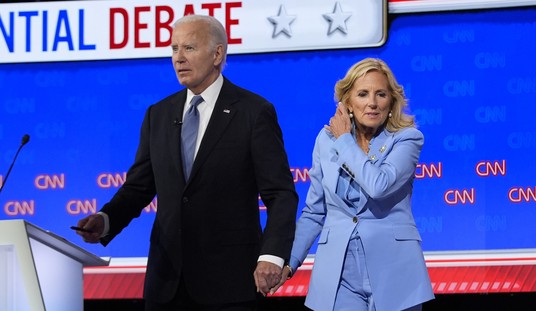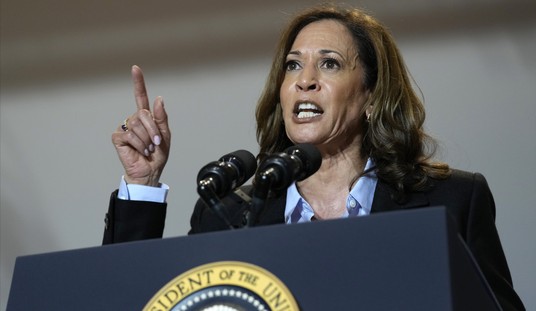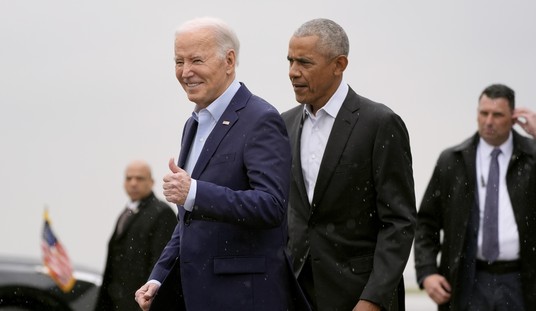The post Frame described the difficulties of circumscribing a problem. A lawyer who wanted an expert estimate of how much dope a smuggler might have been bringing into a certain airport found that the statistician could not answer the question so readily. The problem was finding the right frame.
How you answered the question depended on how you defined the problem. One approach was to take the average amount that drug smugglers carried and base the sentence on that. Or you could estimate his load based on what mules from that particular country tried to bring into that particular airport. But since drug trafficking was also seasonal his probable load varied with the time of year. Moreover, it was established that it was his eighth smuggling trip into the country and he may have been entrusted with more than the average amount because of his experience. … So for a statistician to say anything meaningful about the estimated amount of drugs the mule was carrying you first had to choose which reference set to use. … whether it was better to choose a narrower or wider frame. Suppose you chose Frame A. How would you know you had gotten the frame right? Was there any way to assign a truth proposition to an assertion that you had chosen the “correct” frame?
But reference sets plague more than statisticians. Chris Matthews, in discussing the issue of the Fort Hood shooter, used the Framing problem in order to refuse to make any judgments about whether the act could have been anticipated. Matthews argued that it was very difficult to know where the lines between freedom, crime and terrorism began or ended. Speaking of Hasan, Matthews said, “apparently he tried to contact al Qaeda. Is that the point at which you say, ‘This guy is dangerous?’ That’s not a crime to call up al Qaeda, is it? Is it? I mean, where do you stop the guy?” Poor Matthews was baffled.
CHRIS MATTHEWS: You know, I have a hard time with this because people like Sirhan Sirhan, who is still serving time for killing Bobby Kennedy, didn’t like what Bobby Kennedy had said on television. Bobby Kennedy had made political statements saying we’re going to sell arms, fighter planes directly to Israel, not under the table. We’re going to recognize Jerusalem as the capital of Israel. Those are the things that triggered his killing spree. He killed one person – Bobby Kennedy, horrifically. But did he become a different religious person because he committed the crime? And when did this happen?
See – we have a problem. How do we know when someone like Hasan is going to make his move and do we know he’s an Islamist until he’s made his move? He makes a phone call or whatever, according to Reuters right now. Apparently he tried to contact al Qaeda. Is that the point at which you say, ‘This guy is dangerous?’ That’s not a crime to call up al Qaeda, is it? Is it? I mean, where do you stop the guy?” …
Well, this guy, according to all the testament, admittedly it has not been admitted into court. We cannot call him the shooter until we have a trial. That’s the way we work here, you know, that’s how it works in America, certainly not in the news business. You can’t call somebody a murderer until you get a conviction in court. And the question here is when can you identify a problem? That’s what we have to deal with. And you say it’s an ideological point – you can find the problem. But then we get into the business of checking out on people’s thinking. And that’s the problem.
When does a person become a danger, when they have a certain thought system? Or when they go out and buying semi-automatic pistols, or when they start phoning up al Qaeda, saying how can I join the gang? I mean, where do you stop a person? This is criminology, maybe not ideology, but or even religion. But how do we weed out a guy – it seems to me, all of the warning signs, I mean, we have seen them all now. It’s like looking at pictures of Muhammad Ata hanging around convenience stores and going to ATM machines. We got all kinds of information about this guy after it’s too late.
But this guy was running around shooting his mouth off saying how he hated this country’s wars with – look, you can listen to me on television and hear me saying I didn’t like the war with Iraq. You know, I don’t agree with the war on Iraq and a lot of Americans didn’t like the war with Iraq. They didn’t start shooting people about it.
Others who were perhaps more simple-minded than Matthews disagreed. “I think the very fact that you’ve got a major in the US Army contacting [a radical imam], or attempting to contact him, would raise some red flags,” Rep. Peter Hoekstra (R-Mich.) — ranking Republican on the House Intelligence Committee — told the Los Angeles Times.”
Still, the frame problem is a significant one. Foreign Policy describes how from a certain point of view, British born Taliban are just businessmen, or chemically assisted evangelists if you will. Recent electronic intercepts in Afghanistan show that many of the Taliban grew up in the Midlands and want nothing more than to sell dope to the British the better to convert them to Islam. In an article called British Muslim Gangs and the Chemical Jihad, FP wrote:
For some time, Royal Air Force spy planes have picked up radio communication between Taliban fighters who speak with thick accents from Manchester, Birmingham, West Bromwich and Bradford, all cities with large populations of British Muslims of South Asian origin. … The Gambinos, gangsters of Pakistani origin who take their name from the New York crime family, have been linked to selling Afghan heroin in north London and Luton. So have the South Man Syndicate (SMS) and the Muslim Boys (who are also known as the PDC, or Poverty Driven Children).
“The big bosses have Taliban and al Qaeda connections and we’re often told only to deal it to non-Muslims. They call it chemical jihad and hope to ruin lives while getting massive payouts at the same time,” said a street dealer quoted in this British tabloid.
Members of the Muslim Boys, a gang of Afro-Caribbean Muslim converts (many of who converted to Islam in prison) have boasted to the British media of their links to to al Qaeda, although British officials admit it is hard to tell how much is bravado and how much is a sign of a concrete relationship between extremists in South Asia and the Muslim gangs of the U.K.
At what point do the activities of the Gambinos, South Man Syndicates or the Poverty Driven Children shade into terrorism? Globalization has put tremendous power in the hands of nonstate actors. When, for example, does electronic crime cross the border into cyberterrorism? Robert Lemos describes the intersection between pornography, spam, fraud and national security hacking. And should electronic criminal gangs be treated as potential extensions of foreign intelligence agencies?
“They were running botnet controllers for spamming and other malicious activity,” says André DiMino, co-founder and director of the Shadowserver Foundation. “We had pretty good visibility into what they were doing.”
In June, the FTC took legal action, getting a court order to shut down the company’s Internet connections without first notifying its owners. Digital thieves who used the service to host the servers that managed their far-flung network of compromised computers, or bots, could no longer contact those systems. Botnets of hundreds of thousands of such systems, responsible for spamming millions of messages a day, suddenly fell quiet. …
Similar to other takedowns, the Internet saw an immediate benefit: Spam from a particularly pernicious botnet, known as Cutwail, dropped to nearly zero for days.
As before, the decrease in criminal activity did not last and spam levels increased soon after. Yet, in every move in the cat-and-mouse game, law enforcement and the security community work more closely together.
But having “pretty good visibility into what they were doing” is not the same as understanding what that someone is doing. The NY Post now reports that the FBI had long been aware that Major Hasan was in communication with radical Islamists, but believed it was connected to his research “research into how US combat operations in Iraq and Afghanistan affect civilians.” Hasan’s comms to jihadis weren’t protected by encryption. They were protected by the frame.
Two Chinese PLA colonels, Qiao Liang and Wang Xiangsui were among the first modern theorists to recognize the power of the frame in military operations. In a book called Unrestricted Warfare, the two men argued the vital importance of using International Law to cripple the enemy. The concept is called Lawfare.
n the book, Lawfare is described as “International Law Warfare” and is mentioned alongside several other means by which offensive action may be carried to the enemy without force of arms. In a more detailed aside, it is further described as “Seizing the earliest opportunity to set up regulations.” The book notes that powerful nations take a prerogative to make their own rules, but at the same token bind themselves with them. A second actor could circumvent these regulations because it is not similarly bound by them. Thus, it would be a serious disadvantage to the powerful nation, allowing the smaller nation comparative freedom.
By exploiting the boundary or frame problem (“dissent is the highest form of patriotism” vs treason or “religious freedom” vs Jihad) the militarily weaker foe could tie up a much stronger enemy indefinitely. CS Lewis argued that the greatest trick the devil ever achieved was convince humanity that he didn’t exist. About the only thing that might prove to Chris Matthews is that we’re never sure when the devil is simply providing entertainment or has actually decided to do something bad.
Update:
Of course the most important Frame is the legal one. Trent in comments points to AJ Strata’s extensive analysis of the question of why there is so much information available on Hasan’s previous activities and why so little action was taken. AJ Strata’s conclusion: someone stopped the investigation in 2009. A Newsweek article rooted indirectly in the AJ Strata piece reports that an investigation from 2008 was deep sixed when the FBI concluded that Hasan’s communications with al-Qaeda were protected by “free speech”. The implied timeline is congruent with Strata’s speculation. Michael Isikoff writes (emphasis mine):
Senior federal investigators confirmed Tuesday night that since last December, the FBI monitored from 10 to 20 “communications” between suspected Fort Hood shooter Nidal Malik Hasan and an overseas terror suspect known for preaching violence and expressing sympathy for Al Qaeda.
But although an FBI-led task force undertook an “assessment” of the Army psychiatrist as a result of those contacts, counter-terror officials concluded earlier this year that Hasan’s communications with the terror suspect were “protected” by “free speech” and did not warrant opening up a criminal investigation of him, the investigators said.
What changed between December 2008 and early 2009? Once again we run into the frame and Isikoff reports that Justice officials are suggesting that gun data restrictions were partly to blame but is smart enough to know that this is hardly likely to fly. The long and short of it is that the Feds had long been watching Hasan, but somewhere, somebody dropped — or was told to drop — the ball.
As to Hasan’s weapons purchase, the investigators stressed that under existing federal law, there are tight restrictions imposed by Congress about sharing any such information even within the FBI. … The FBI has chafed under these restrictions in the past but has failed to have them eased due to fierce resistance from the gun lobby and its supporters in Congress (as well as, in the past, in the Bush administration.)
Whether the Hasan case prompts another look at those restrictions – by the Democratic controlled Congress or the Obama Justice Department—is one question sure to be asked in the weeks ahead.










Join the conversation as a VIP Member